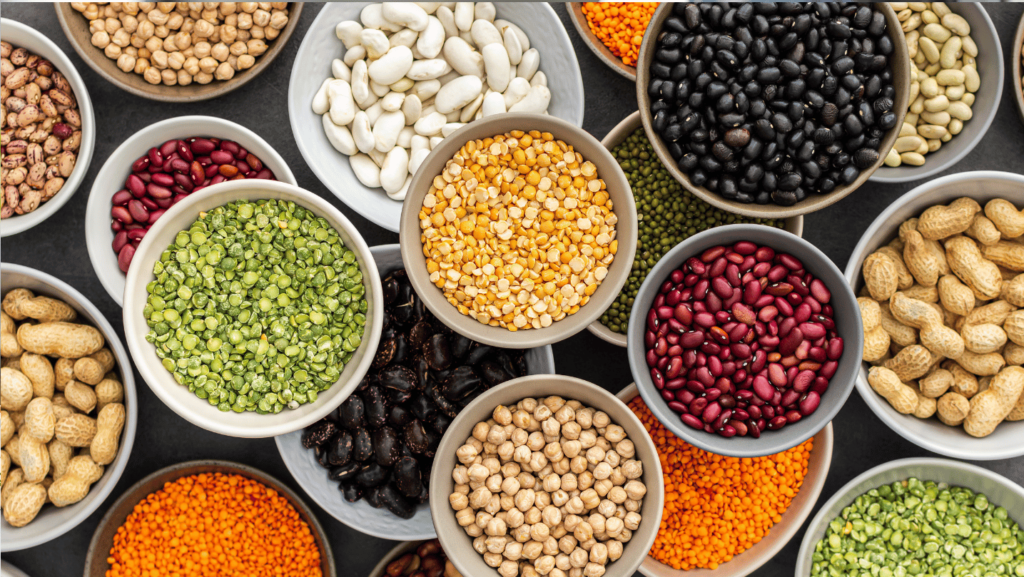Taking care of your gut health is essential for overall well-being, and what you eat plays a significant role in maintaining a healthy digestive system. Incorporating gut-friendly food can help support a balanced microbiome, improve digestion, and enhance nutrient absorption.
These provide essential nutrients but also work to foster a diverse and thriving gut environment that supports your health from the inside out. Here are some examples of gut-friendly food that can help you support a healthy and balanced digestive system.
Leafy Greens (Spinach, Kale, Swiss Chard)
Leafy greens are among the most nutrient-dense foods you can include in your diet. They are rich in fiber, which aids in regular bowel movements and feeds the beneficial bacteria in your gut.
They also contain a variety of essential vitamins and minerals like vitamins A, C, K, and folate, which support overall digestive health and the integrity of the gut lining.
Introducing a Superfood Greens Powder into your daily routine can amplify these benefits. Formulated with concentrated extracts from various leafy greens, this powder offers a convenient way to ensure you’re getting the prebiotics your gut needs.
The prebiotics found in leafy greens, such as inulin, serve as food for probiotics (the good bacteria), promoting a balanced and diverse gut microbiome. Additionally, they have anti-inflammatory properties that can soothe the gut and reduce the risk of gastrointestinal disorders.
Consulting a local gastroenterologist can offer personalized advice on incorporating more leafy greens into your diet for optimal gut health.
Berries (Blueberries, Strawberries, Raspberries)
Berries are small but mighty when it comes to supporting gut health. Their high fiber content aids in digestive regularity and acts as a prebiotic, feeding beneficial gut bacteria.
The polyphenols and antioxidants in berries, such as anthocyanins, have been shown to reduce gut inflammation and combat oxidative stress, which can damage gut cells and disrupt the microbiome balance.
Berries also contain a significant amount of water, which helps keep your digestive system hydrated and aids in the smooth transit of food through your intestines. Regularly including berries in your diet can contribute to a healthier, more resilient gut.
Whole Grains (Oats, Quinoa, Brown Rice)
Whole grains are a powerhouse for gut health, offering a robust source of dietary fiber, which is essential for maintaining regular bowel movements and preventing constipation.
The fiber in whole grains, particularly soluble fiber found in oats, forms a gel-like substance in the gut, helping to slow digestion and regulate blood sugar levels.
Whole grains also contain resistant starch, a type of carbohydrate that resists digestion in the small intestine and ferments in the large intestine, acting as a prebiotic.
This fermentation process fosters the growth of beneficial gut bacteria, enhancing overall digestive health and reducing the risk of conditions like diverticulosis and colorectal cancer.
Legumes (Beans, Lentils, Chickpeas)
Legumes are nutritional powerhouses rich in fiber, protein, and various prebiotic compounds that nourish the gut microbiome. Their high fiber content helps add bulk to stool and improves bowel regularity, reducing the likelihood of constipation and other digestive issues.

Legumes also play a significant role in diversifying the gut microbiome, which is crucial for maintaining gut health and preventing dysbiosis—a condition where the balance of gut bacteria is disrupted.
The complex carbohydrates in legumes, including resistant starches and oligosaccharides, act as prebiotics that feed beneficial bacteria, promote gut flora diversity, and help reduce inflammation within the digestive tract.
Nuts and Seeds (Almonds, Chia Seeds, Flaxseeds)
Nuts and seeds are valuable additions to a gut-friendly diet, offering a unique combination of fiber, healthy fats, and essential nutrients that support gut health. The fiber in nuts and seeds functions as a prebiotic, feeding the beneficial bacteria in your gut and promoting a balanced microbiome.
Additionally, many nuts and seeds are rich in omega-3 fatty acids, known for their anti-inflammatory properties, which can help soothe the gut lining and reduce the risk of inflammatory gut conditions.
For instance, chia seeds and flaxseeds also provide mucilage—a type of soluble fiber that forms a gel-like substance in the gut, aiding in stool formation and regularity.
Including a variety of nuts and seeds in your diet can help maintain gut health, support digestion, and provide lasting satiety.
Fermented Foods (Sauerkraut, Kimchi, Miso)
Fermented foods are not only flavorful additions to meals but also powerful allies for gut health. The fermentation process involves the action of bacteria and yeast breaking down sugars in foods, resulting in the production of probiotics—live beneficial bacteria that help populate your gut.
Consuming fermented foods like sauerkraut, kimchi, and miso introduces these probiotics into your digestive system, where they help maintain the balance of your gut microbiome, breaking down food and absorbing nutrients efficiently.
Fermented foods can also enhance immune health by supporting the gut barrier and preventing harmful pathogens from entering the bloodstream.
Including a variety of fermented foods in your diet can contribute to improved digestion, reduced bloating, and enhanced overall gut function.
Garlic and Onions
Garlic and onions are culinary staples that also pack a punch when it comes to gut health. These alliums are rich in inulin, a type of prebiotic fiber that serves as food for beneficial gut bacteria, helping to promote a healthy and diverse microbiome.
The inulin in garlic and onions has been shown to increase the number of bifidobacteria in the gut, which are crucial for maintaining a balanced digestive environment.
Moreover, garlic and onions contain sulfur compounds like allicin, which have natural antibacterial and antifungal properties. These compounds help manage harmful bacteria levels in the gut without disrupting the overall microbial balance.
Including garlic and onions in your meals not only enhances flavor but also supports a thriving gut microbiome, contributing to better digestion and reduced inflammation.
Wrapping Up
A diverse and balanced diet rich in leafy greens, berries, whole grains, legumes, nuts and seeds, fermented foods, and garlic and onions can significantly support your gut health.
These foods provide the fiber, prebiotics, and probiotics necessary to foster a healthy gut microbiome, improve digestion, and reduce inflammation. By prioritizing these gut-friendly options, you can enjoy better digestive function, enhanced nutrient absorption, and a stronger immune system.





